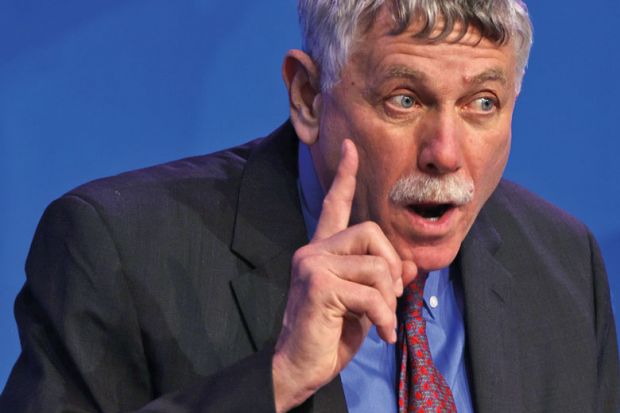The Biden administration is promising a quick push to clear up confusion among universities and their academic staff over what foreign research activities need to be reported to the government – and facing scepticism given the extent of the problem.
The White House science adviser, Eric Lander, has set an early November deadline for giving federal funding agencies “clear and effective” guidance for researcher disclosures that encourage global scientific cooperation while guarding against national security threats.
The long-standing problem, which universities fear could lead to international partners being scared off, has become more fraught in recent years, with a Trump administration crackdown on researchers having ties to China – which largely involved arresting those who did not fully disclose foreign affiliations on grant applications – exacerbated by broader anti-Asian discrimination during the Covid pandemic and potentially by an impending US intelligence report into the origins of Covid-19.
The Justice Department’s China Initiative so far has involved at least 16 arrests of academic scientists. Under the present administration, federal prosecutors have in recent weeks dropped charges against one US researcher and five Chinese scientists. But they also agreed to renew the prosecution of Anming Hu, a Chinese-born former University of Tennessee nanomanufacturing expert whose first trial included evidence that he was a victim of FBI persecution.
Any effort to clarify exactly what researchers should report, and to harmonise those rules across the various federal agencies involved, is badly needed, said Kristin West, director of research ethics and compliance at the Council on Governmental Relations, a university grouping focused on federal regulations.
Yet that goal of consistency has long proved elusive in the vast federal bureaucracy, continued Ms West, a former US Justice Department attorney and director of research compliance at Emory University.
"That’s really what everyone’s very, very concerned about” being able to achieve, she said.
The Trump crackdown was seen by many in US higher education as taking advantage of those confusions and variations in federal regulations, by using arrests for alleged paperwork violations as a tool to broadly deter scientific partnerships with China.
The best-known case involves Charles Lieber, the chair of Harvard University’s chemistry department until his arrest last year. Professor Lieber still stands accused of failing to disclose a Chinese partnership even though it had been publicly reported at the time.
The move by Dr Lander to make clear what needs to be disclosed and where builds on a Trump-initiated framework to reduce and better coordinate security-related regulations in higher education.
Yet the scale of the job ahead, Ms West said, seems evident in the fact that the National Institutes of Health and the National Science Foundation – the two leading funders of basic university research – both just completed fairly substantial revisions of their disclosure requirements and did not manage to synchronise them.
“I understand that they’re trying, but they’re still not quite there,” she said.
“There is a lot of work ahead” to make good on Dr Lander’s promise, said another expert, Margaret Lewis, a professor of law at Seton Hall University who specialises in criminal justice, human rights and China.
Philip Lomonaco, an attorney for Dr Hu, suggested that the government remove the confusion by creating a single disclosure form that scientists fill out each year.
“Each agency has different requirements,” Mr Lomonaco said. “It is very important that scientists know what they need to disclose.”
As a first step, the heads of 20 Asian American advocacy groups said in a new letter to Mr Biden two weeks after they met with him at the White House, the president must clearly end the Trump-initiated prosecutions.
The China Initiative has led “to racial profiling, surveillance and wrongful prosecutions, where no evidence of economic espionage or trade secret theft exists”, the groups told Mr Biden.
Register to continue
Why register?
- Registration is free and only takes a moment
- Once registered, you can read 3 articles a month
- Sign up for our newsletter
Subscribe
Or subscribe for unlimited access to:
- Unlimited access to news, views, insights & reviews
- Digital editions
- Digital access to THE’s university and college rankings analysis
Already registered or a current subscriber? Login







